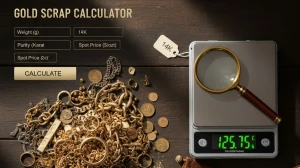
What is a Good Credit Score to Buy a Car? Do You Need a Credit Score to Buy a Car?
A good credit score to buy a car typically ranges from 661 to 780 or higher, influencing interest rates; having a credit score is usually required to secure a car loan.
by Kowsalya
Published Aug 17, 2023 | Updated Aug 17, 2023 | 📖 7 min read
What is a Good Credit Score to Buy a Car?
A credit score of 661 or higher will give you the best chance of qualifying for a car loan with a good interest rate. Your creditworthiness is assessed by multiple credit scoring models, each analyzing your credit reports with varying weight on factors. The primary models include:
- FICO: Widely recognized, FICO Scores range from 300 to 850.
- VantageScore: A newer contender, its latest version scores from 300 to 850, aligning with FICO.
These models offer specialized scores like the FICO Auto Score for auto lending, adjusting weightings for factors such as credit utilization and late payments. Some dealerships use this score, so inquire about scoring methods before authorizing a credit check.
A high credit score (typically 680+) secures lower interest rates, translating to affordable monthly payments and more favorable terms. Understanding the intricacies of credit scoring aids in making informed decisions about your financial endeavors.
Do You Need a Credit Score to Buy a Car?
The credit score required to purchase a car isn't universally fixed, as each lender establishes its own standards. Various lenders might have distinct thresholds. However, aiming for a credit score of 661 or higher is advisable.
This score could potentially secure you a new-car loan with an APR of approximately 6.40% or better, while a used-car loan might carry an APR of 8.75% or lower. It's worth noting that possessing a lower credit score doesn't necessarily preclude you from obtaining a car loan, but it could result in a higher interest rate. Consequently, this could lead to elevated monthly payments. It's prudent to enhance your credit score before seeking an auto loan to enjoy more favorable terms and rates.
What is the Minimum Score Needed to Buy a Car?
When evaluating your auto loan application, lenders assess both your income and credit score. These lenders categorize applicants according to their scores into various groups, including:
- Super prime: 781 to 850
- Prime: 661 to 780
- Non-prime: 601 to 660
- Subprime: 501 to 600
- Deep subprime: 300 to 500
Typically, lenders prefer borrowers falling within the prime range or higher. As a result, to be eligible for most standard car loans, you would need a credit score of 661 or greater. This underscores the significance of maintaining a strong credit score to enhance your chances of securing favorable terms and rates for your auto financing. Higher credit scores generally lead to more advantageous loan options and more manageable monthly payments.
How to Buy a Car with a Poor Credit Score?
When dealing with fair or poor credit, there are three options to consider for financing a car:
- Accept Higher Interest Rates: If your credit score is below prime, expect higher interest rates due to the perceived risk by lenders. While you can secure a car loan, your interest rate will likely be significantly higher than someone with good credit. For instance, prime borrowers had an average interest rate of 4.03% in Q2 2022, while deep subprime borrowers faced 12.84%.
- Specialized Dealerships for Poor Credit: Seek out dealerships specializing in buyers with poor credit. These "buy here, pay here" dealerships offer in-house financing for used vehicles, catering to individuals struggling with credit. Be prepared for substantially elevated interest rates, as these dealers aim to mitigate the risk associated with lower credit scores.
- Co-Signer Application: Apply for a car loan with a co-signer if your credit falls within the non-prime to deep subprime range. A co-signer, often a family member with strong credit, shares the loan responsibility and reduces the lender's risk. This could lead to a higher chance of loan approval and potentially lower interest rates. However, keep in mind that failing to make payments would burden your co-signer with the debt.
Evaluate these options carefully to make an informed decision based on your credit situation and financial capabilities.
How Does Your Credit Score Affect Your Auto Loan?
Your credit score holds more influence than just determining your eligibility for auto loans; it significantly affects the interest rates and charges imposed by lenders when you finance a vehicle purchase.
As per Experian, the average auto loan amount financed in 2022 stood at $41,445. Breaking down this average loan amount over a 60-month new auto loan reveals how your FICO® Score can impact both your monthly payments and overall interest costs.
Comparison of Loan Costs for a 60-Month New Auto Loan:
FICO® Score range: 720-850
- APR: 7.10%
- Monthly payment: $823
- Total interest costs: $7,907
FICO® Score range: 660-719
- APR: 8.20%
- Monthly payment: $844
- Total interest costs: $9,216
FICO® Score range: 660-689
- APR: 9.89%
- Monthly payment: $878
- Total interest costs: $11,253
FICO® Score range: 620-659
- APR: 12.10%
- Monthly payment: $924
- Total interest costs: $13,999
FICO® Score range: 590-619
- APR: 16.31%
- Monthly payment: $1,015
- Total interest costs: $19,433
FICO® Score range: 500-589
- APR: 17.12%
- Monthly payment: $1,028
- Total interest costs: $20,233
What Are the Ways to Qualify for a Loan With Bad Credit?
Gaining approval for an auto loan with unfavorable credit can be daunting, but strategies exist to enhance your likelihood of success.
- Enhance your down payment: Opting for a larger initial payment could aid your quest for an auto loan approval, even with a poor credit history.
- Secure a cosigner: Introducing a cosigner possessing strong credit could augment your prospects of loan qualification despite credit challenges. It's important to recognize that this entails significant responsibility for your cosigner, as they assume payment obligations should you default.
- Explore diverse options: Engage in comprehensive lender comparison, considering those accommodating individuals with imperfect credit. This process can unveil available bad credit loan alternatives and their suitability to your financial circumstances.
Employing these tactics can bolster your odds of securing an auto loan, even if your credit history is not optimal.
How to Check Your Credit Score?
Regularly monitoring your credit reports is essential, and tracking your credit scores offers insights into your credit health and progress.
Here are several resources to consider for checking your credit score:
- myFICO: Gain access to your three credit reports and FICO® Scores for a fee, starting from $29.95 monthly.
- Experian: Receive a complimentary FICO® Score 8 and Experian credit report each month, though the website may offer additional scores and reports for purchase upon login.
- Equifax: Utilize the Equifax Core Credit™ program for a free VantageScore 3.0 credit score monthly.
- Credit card companies and banks: Some financial institutions provide courtesy access to your credit score (FICO or VantageScore) each month.
- Credit monitoring programs: Numerous online credit monitoring services, both free and paid, are available. Free options might offer limited choices, while fee-based programs generally offer more comprehensive features, such as FICO Scores and comprehensive credit reports.
By utilizing these resources, you can stay informed about your credit standing and maintain control over your financial well-being.
What Are the Tips for Improving Your Credit Score Before You Buy?
There’s no one-size-fits-all way to improve a credit score. Nonetheless, the following good credit habits can be a good place to start.
- Review your credit reports for errors. It’s important to check your credit reports from Equifax, TransUnion, and Experian and review them for accuracy. If you find mistakes on your reports, such as fraudulent accounts, those errors could drag your credit scores down in an unfair way.
- Dispute credit report errors. The Fair Credit Reporting Act (FCRA) allows you to dispute any errors you discover on your credit reports. You can visit the Federal Trade Commission’s website to access a free sample dispute letter template.
- Pay down credit card balances. Reducing any credit card debt you have can save you money on high interest charges and lower your credit utilization rate (aka your credit card balance-to-limit relationship) at the same time. The lower your credit utilization rate falls, the better from a credit score standpoint.
- Consolidate credit card debt. Using a balance transfer credit card or a lower-rate installment loan to consolidate your credit card debt might be worth considering if you know it’s going to take some time to pay down your credit card balances.
What is a Good Credit Score to Buy a Car-FAQs
1. What is considered a good credit score to buy a car?
A good credit score to buy a car typically falls within the range of 661 to 780 or higher. However, the exact score required can vary among lenders and their criteria.
2. Can I get a car loan with a credit score below 661?
Yes, you can still get a car loan with a credit score below 661, but it might be more challenging. Lenders might offer loans with higher interest rates and stricter terms for borrowers with lower credit scores.
3. How does my credit score affect my car loan interest rate?
Your credit score directly influences your car loan interest rate. A higher credit score generally leads to lower interest rates, resulting in reduced overall interest costs over the life of the loan.
4. What interest rate can I expect with a good credit score for a car loan?
With a good credit score in the range of 661 to 780, you can expect competitive interest rates that may range from around 6.40% or better for a new car loan and around 8.75% or lower for a used car loan, depending on the lender and other factors.
5. How can I improve my credit score to get a better car loan rate?
To improve your credit score for a better car loan rate, focus on paying bills on time, reducing credit card balances, and addressing any errors on your credit reports. Consistent good financial habits can gradually enhance your creditworthiness.




